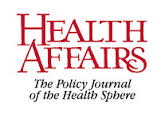PA Uninsured Rate Declines
Pennsylvania’s uninsured rate has fallen to 6.4 percent, according to the U.S. Census Bureau.
That’s less than half the state-wide rate of 13 percent in 2011 and 2012.
 Since that time the state’s Medicaid expansion has added 670,000 Pennsylvanians to the ranks of the insured, with others purchasing insurance through the federal health insurance marketplace.
Since that time the state’s Medicaid expansion has added 670,000 Pennsylvanians to the ranks of the insured, with others purchasing insurance through the federal health insurance marketplace.
Learn more about the decline in the number of uninsured Pennsylvanians in this news release from the office of Governor Tom Wolf.


 Further, the study suggests,
Further, the study suggests, The Pennsylvania Health Law Project has published its September 2016 newsletter.
The Pennsylvania Health Law Project has published its September 2016 newsletter.

 Meanwhile, a growing body of research has documented that the anticipated impact of serving socioeconomically challenged patients is real and more and more people are joining the call for Congress or CMS to address the problem.
Meanwhile, a growing body of research has documented that the anticipated impact of serving socioeconomically challenged patients is real and more and more people are joining the call for Congress or CMS to address the problem.